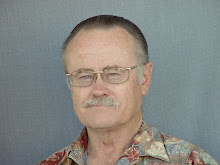Fear Not the Disabled -- Part 1
Retrieved from:
Editorial (2005). Fear Not the Disabled., Christianity Today, 49 (11), 28.
Database: Academic Search Premier
We all benefit when people with disabilities are valued in our churches.
IMAGINE WALKING DOWN THE STREET and hearing a child say to his mother: "Mom, why does he walk that way?" Or, "Why is she in that wheelchair?" Or, "Why does he have that cane?" People with disabilities don't have to imagine such questions. They hear them regularly--at least those who can hear.
But it's not the queries of curious youngsters that bother those facing physical or mental challenges. It's the indifference, discrimination, or outright hostility that often comes from adults. During the public debate over Terri Schiavo, one especially blunt blogger wrote that Michael Schiavo had been "chained to a drooling [excrement]-bag for 15 years."
Blinded by media-induced visions of health and rugged individualism and by films such as Million Dollar Baby, many people see disability as a fate worse than death. Joni Eareckson Tada, left paralyzed after a diving accident 38 years ago, knows such private attitudes inevitably impact public policy.
"People have a fundamental fear of disabilities," Tada tells CT. "That fear drives social policy."
Continued in Part 2
Copyright of Christianity Today is the property of Christianity Today International and its content may not be copied or emailed to multiple sites or posted to a listserv without the copyright holder's express written permission. However, users may print, download, or email articles for individual use.
Editorial (2005). Fear Not the Disabled., Christianity Today, 49 (11), 28.
Database: Academic Search Premier
We all benefit when people with disabilities are valued in our churches.
IMAGINE WALKING DOWN THE STREET and hearing a child say to his mother: "Mom, why does he walk that way?" Or, "Why is she in that wheelchair?" Or, "Why does he have that cane?" People with disabilities don't have to imagine such questions. They hear them regularly--at least those who can hear.
But it's not the queries of curious youngsters that bother those facing physical or mental challenges. It's the indifference, discrimination, or outright hostility that often comes from adults. During the public debate over Terri Schiavo, one especially blunt blogger wrote that Michael Schiavo had been "chained to a drooling [excrement]-bag for 15 years."
Blinded by media-induced visions of health and rugged individualism and by films such as Million Dollar Baby, many people see disability as a fate worse than death. Joni Eareckson Tada, left paralyzed after a diving accident 38 years ago, knows such private attitudes inevitably impact public policy.
"People have a fundamental fear of disabilities," Tada tells CT. "That fear drives social policy."
Continued in Part 2
Copyright of Christianity Today is the property of Christianity Today International and its content may not be copied or emailed to multiple sites or posted to a listserv without the copyright holder's express written permission. However, users may print, download, or email articles for individual use.
Labels: Disability


1 Comments:
Our society has blinded us to the true value in many things. We have an abundance and excess of material things that I fear may have clouded our ability to not think that all things are not subject to disposal if we "don't like the fit", "change our minds", "want a newer, better, perfect one", etc. I mean to say that in a society where things are disposable ,we may incorrectly conclude that people too are disposible especially if they have visible blemishes or defects. Two very public examples of just the opposite value is shown by the spouses of Joni Erickson Tada and Dana Reeve. I've always admired Joni Ereckson Tada's relationship with her husband and Christopher Reeve and his wife as their relationships shout to the world that love remains conquers all. The non-disabled spouse in both cases exemplify the true meaning of agape love.
Post a Comment
<< Home